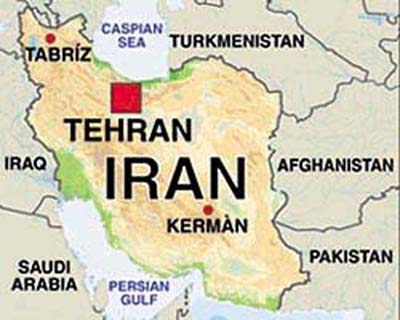Iran detainees describe beatings, false confessions
 New York/Washington - Iranian political detainees who have been released from prison say they were beaten and subjected to other harsh treatment by Iranian authorities trying to force them into false confessions, Human Rights Watch reported Wednesday.
New York/Washington - Iranian political detainees who have been released from prison say they were beaten and subjected to other harsh treatment by Iranian authorities trying to force them into false confessions, Human Rights Watch reported Wednesday.
One 17-year-old ex-detainee described being blindfolded and forced to stand for 48 hours until he signed a blank confession.
The report follows the crackdown on Iranian demonstrators who protested alleged election fraud on June 12 when President Mahmoud Ahmadinejad was reaffirmed.
More than 1,000 dissidents have been arrested, including former reformist officials, Parliament deputies, journalists and cabinet members, including Mohammad-Ali Abtahiin, the former deputy under ex- president Mohammed Khatami.
On Tuesday, Iran's opposition called for an immediate release of all prisoners detained after the elections. Losing candidate Mir- Hossein Moussavi, Khatami and former Parliament speaker Mehdi Karroubi said that "forceful confessions are illegal, un-Islamic and inhumane."
Over the weekend, lawyers representing some of the more prominent detainees said they had not yet been able to meet with their clients. Saleh Nikbakht, who has been appointed to defend Newsweek correspondent Maziar Bahari, said he had yet to visit him in prison.
The detention of an Iranian employee of the British embassy, Hossein Rassam, provoked European Union foreign ministries last week to summon Iranian ambassadors in a concerted diplomatic protest.
In its report Wednesday, Human Rights watch said the detainees have been subjected to prolonged harsh interrogations, beatings, sleep deprivation and threats of torture.
"The confessions appear designed to support unsubstantiated allegations by senior government officials that Iran's post-election protests ... were supported by foreign powers and aimed at overthrowing the government," the report said.
The 17-year-old boy quoted in the report was arrested on June 27 and released on July 1. He described how the interrogator forced him and others to sign the blank statement after he stood blindfolded for 48 hours in a parking garage with other frightened prisoners.
"On the first night, they tied up our hands and repeatedly beat us and other prisoners with a baton. They kept cursing at the prisoners. The atmosphere was very frightening. Everyone had wet themselves from fear and stress," the ex-detainee told Human Rights Watch.
He said the age of detainees ranged from 15 to 70.
In the interrogation, "We were asked about everything: where we had studied, what our parents do, who we voted for, who is educated in the family, if anyone in our family is part of the military," the witness said.
The witness said he had gotten one large piece of bread to eat in the two days, but no water.
On the final day of his detention, "They took away the blindfold to force us sign a paper that was blank on top but said at the bottom: 'I agree with all of the above statements,'" the teenager said.
On Sunday, the head of Iranian police, General Ismeil Ahmadi- Moqaddam, charged that some detainees had received "training abroad" in the pursuit of a "velvet revolution" at home, the Mehr news agency reported.
Sarah Leah Whitson, director of Middle East and North Africa research for Human Rights Watch, said that the Iranian government was "desperate to justify its vicious attacks on peaceful protesters."
What better excuse does it need than confessions of foreign plots, beaten out of detainees?" she said.
An eyewitness who observed an incident last week at the Revolutionary Court, which is handling the detainee cases, described a list of 1,349 prisoners on the court's wall of prisoners who would soon be released, the Human Rights Watch report said.
A separate sheet gave 223 names of people still being investigated.
"In the few hours that I spent before outside the court, I witnessed a number of people being released. Almost all of them had bruised faces and hands. Some of the families, after seeing their sons/daughters in such bad condition, started to cry, while other families claimed their sons or daughters were missing and their names were not listed," the witness told Human Rights Watch.
Human Rights Watch said it had collected the names of 450 people arrested by security forces since June 13, including more than 100 political figures, journalists, human- rights activists, academics and lawyers.(dpa)